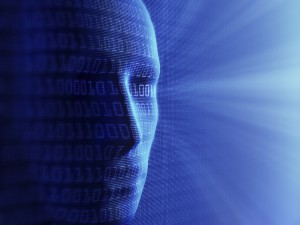 Technology: We all use it, and some of us couldn’t go an entire day without it. In many ways, digital technology has improved our lives by increasing productivity and communication. Computer technology is everywhere: our homes, offices, phones and even cars. Technology has integrating into our lives so completely that most of us no longer stop to marvel at even the [seemingly] simplest capabilities such as the predictive software that our smart phones use to predict which word we are typing after we type in only the first few letters, especially if the software gets it wrong much of the time. However, digital technology has its dangers and inconveniences: cybercrime, hackers, stolen data, and computer crashes and failed Wi-Fi connections at the most inopportune times. In a recent BBC interview, one of modern science’s most brilliant minds highlighted another potential danger: artificial intelligence. Does artificial intelligence pose a threat to mankind?
Technology: We all use it, and some of us couldn’t go an entire day without it. In many ways, digital technology has improved our lives by increasing productivity and communication. Computer technology is everywhere: our homes, offices, phones and even cars. Technology has integrating into our lives so completely that most of us no longer stop to marvel at even the [seemingly] simplest capabilities such as the predictive software that our smart phones use to predict which word we are typing after we type in only the first few letters, especially if the software gets it wrong much of the time. However, digital technology has its dangers and inconveniences: cybercrime, hackers, stolen data, and computer crashes and failed Wi-Fi connections at the most inopportune times. In a recent BBC interview, one of modern science’s most brilliant minds highlighted another potential danger: artificial intelligence. Does artificial intelligence pose a threat to mankind?
In this BBC interview, Professor Stephen Hawking, who suffers from amyotrophic lateral sclerosis (ALS) and relies on a computerized communication system to convey his thoughts, discussed his recent upgrade to ACAT (Assistive Context Aware Toolkit), which uses a basic form of artificial intelligence (AI) to better anticipate the next word in a sentence. This combination of predictive text input and algorithms has greatly increase Hawking’s typing speed. And, while basic forms of AI have proven very useful, near the end of this interview, Hawking warns that more advanced forms of AI could quickly “evolve” and supersede humans, whose evolution progresses over a much longer time scale. Could we as humans “keep up” with advancing forms of artificial intelligence?
Professor Hawking is not the only person to publicly comment on the potential dangers of AI; other high-profile scientists and thought leaders also have voiced concerns about AI, especially as no one can predict how these “beings” will evolve and interact with us and whether humans will be able to direct that evolution. Will AI benefit us, ignore us or, as many science fiction movies portray, try to destroy us?
Currently, there is no cause for concern because computer scientists have not yet developed full AI. Many predict that full AI is at least 10–20 years into the future, making this the perfect time to debate the necessary precautions and safeguards. However, not knowing how AI systems will adapt and change in the future complicates this debate and makes it difficult for scientists to know what safeguards are sufficient. This fact doesn’t mean that the debate is not worth having though.
